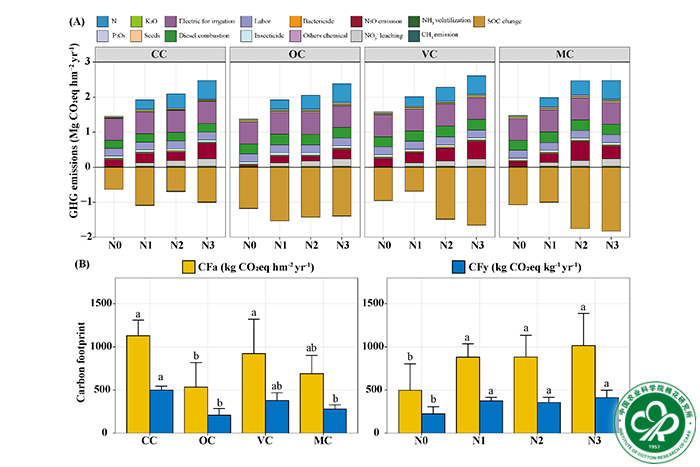- Location : Home» Newsroom
Clarifies the environmental advantages of introducing green manure mixture in monoculture cotton fields
Recently, a team of researchers from the Institute of Cotton Research, Chinese Academy of Agricultural Sciences (CAAS), Dr. Li Yabing, conducted a study on innovative cotton cropping systems, and comprehensively assessed the environmental sustainability of different cotton cropping systems in terms of energy flow, environmental footprint, ecological services and benefits. The research results are summarized as "Growing cover crop mixtures are more sustainable than single cover crop in continuous cotton cropping: Comprehensive assessment from 3-year field experiment". The research results were published in the internationally recognized Journal of Cleaner Production (IF=11.1, JCRQ1) under the title of "Growing cover crop mixtures are more sustainable than single cover crop in continuous cotton cropping: comprehensive assessment from 3-year field experiment".
Diversified green manure-based cropping can improve soil health and cash crop productivity by increasing resource use efficiency. However, few studies have comprehensively evaluated cropping systems after the introduction of green manure from energy, environmental, economic and ecological perspectives.
This study analyzed the systematic energy flow, carbon and nitrogen footprints, ecosystem service function values and inputs and outputs of four green manure cropping patterns, and combined them with principal components and sustainability indices for systematic sustainability assessment. The results showed that the system nitrogen footprint, gas regulation value and soil nutrient cycling value increased after the introduction of green manure in cotton fields; however, compared with single green manure, mixed sowing of green manure could reduce the carbon footprint per unit yield and per unit area, increase the energy output and ecosystem service value, and improve the ecological and economic benefits. This study provides a practical case for clean and sustainable production of cotton in China.
The study was funded by the National Key Research and Development Program of China. Zhang Zhenggui, a graduated PhD student of CAASCRI, is the first author of the paper, and researcher Li Yabing, researcher Wang Zhanbiao and researcher Wang Guoping are the corresponding authors.
DOI:https://doi.org/10.1016/j.jclepro.2023.138350
